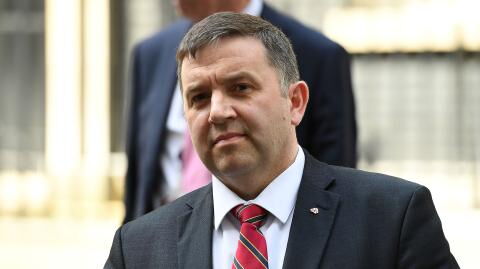Your roommate has a cold. You were both vaccinated months ago, but every time you hear him cough in the next room, you can't help but wonder if you should be tested for COVID-19. Most public health experts would say that you have nothing to worry about—you're probably not sick or infected—unless you're experiencing symptoms.
Discover our latest podcast
Although COVID-19 vaccines are very effective in preventing severe forms of the disease, 'breakthrough' infections do occur in fully vaccinated people. This can look like a bad cold, or have no symptoms at all.
The Delta variant has increased the chances of such an infection, but there are many other viruses circulating, Amesh Adalja, senior researcher at the Johns Hopkins Center for Health Security, an independent organisation based in Baltimore, US, told Business Insider.
The only way to be sure is to get tested. But if your roommate tests positive for COVID-19, what do you do?
Get tested if you have cold-like symptoms
If you have a cough, a cold, or a loss of taste and smell after a known exposure, you should get tested, regardless of your vaccination status.
Start with a rapid antigen test. In studies, these tests were about 72% effective in identifying COVID-19 in symptomatic people—and correctly excluded COVID in about 99.5% of people who were symptomatic for other reasons.
You can also do a quick test at home. These are more accurate if you get tested every day for a while, so if you are initially negative, you may want to retest to be sure. You can also do a PCR test to look for other viruses, added Amesh Adalja. He said:
It's important to remember that now that many people have social interactions, other viruses have reappeared, such as nasopharyngitis and seasonal coronaviruses, so there are other causes of cold symptoms.
If you don't have symptoms, many experts say you're probably safe.
The Centers for Disease Control and Prevention (CDC) recommends that vaccinated people be tested or quarantined only if they have symptoms of COVID-19.
If you are symptom-free for more than a week after exposure, you can relax, according to Paul Offit, director of the Vaccine Education Center at the Children's Hospital of Philadelphia. Adalja said:
The only time you should get tested if you are fully vaccinated is if you are symptomatic, regardless of the exposure.
Quarantine yourself if you feel sick or test positive for COVID
Symptoms of COVID-19 or a seasonal virus indicate that you could be contagious to others. Paul Offit told Insider:
If the virus is replicating well enough in you to cause symptoms, I think that means you are likely to be contagious.
Vaccinated people who catch COVID may be less contagious than unvaccinated infected people, based on their reduced viral load. However, other experts recommend using common sense before deferring to CDC guidelines, which 'lack nuance,' emergency room physician Leana Wen told CNN.
Leana Wen told CNN:
I don't want someone to come into work and tell me they've been up all night caring for their spouse who is sick with COVID.
Should that person really be in a crowded conference room with a whole bunch of other people? Does that seem fair? It doesn't meet the common sense test.
One thing the experts generally agree on: stay away from people if you don't feel well. The pandemic health standards—wearing masks, quarantine—still apply if you are sick and it's not COVID-19. But if you're vaccinated and you feel fine, there's no need to worry," said Paul Offit.















